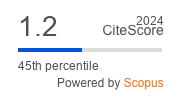Evaluation of Cell Line Identity Using RTCA Profiling for Quality Control of Products Containing Viable Human Cells
https://doi.org/10.33380/2305-2066-2023-12-3-104-110
Abstract
Introduction. Identity is an important quality attribute of products containing viable human cells, to be tested during the quality control. The verification of identity includes, among other things, determination of the proliferative activity of the cell lines included in such products. The Agilent xCELLigence real-time cell analysis (RTCA) DP (dual purpose) instrument (USA) for continuous, label-free in vitro analysis can be used to assess the cell proliferative activity.
Aim. Demonstration of reproducibility of the RTCA profiling technique as a test method for primary verification of the cell line identity.
Materials and methods. An xCELLigence RTCA DP cell analyzer (Agilent Technologies, USA) was used to obtain RTCA profiles of dermal fibroblast (DF-2) and adipose tissue-derived mesenchymal stromal (MSC AT_D122) cell lines. The experiment was carried out in triplicate after thawing three different vials from the same batch for each cell line.
Results and discussion. The RTCA profiles were obtained for DF-2 and MSC AT_D122 cell lines. The statistical processing of the results was carried out using the Friedman test, confidence intervals, and growth curve parameters obtained by the instrument (doubling time, proliferation rate, and maximum cell index). The obtained data demonstrate no differences in the RTCA profiles after parallel sampling of the contents from three vials for each cell line.
Conclusion. The RTCA profiling reproducibility was confirmed in order to assess the cell analyzer’s applicability to cell line identity.
About the Authors
M. A. VodyakovaRussian Federation
8/2, Petrovsky Boulevard, Moscow, 127051
O. A. Rachinskaya
Russian Federation
8/2, Petrovsky Boulevard, Moscow, 127051
N. S. Pokrovsky
Russian Federation
8/2, Petrovsky Boulevard, Moscow, 127051
I. S. Semenova
Russian Federation
8/2, Petrovsky Boulevard, Moscow, 127051
E. V. Melnikova
Russian Federation
8/2, Petrovsky Boulevard, Moscow, 127051
V. A. Merkulov
Russian Federation
8/2, Petrovsky Boulevard, Moscow, 127051
References
1. Xi B., Yu N., Wang X., Xu X., Abassi Y. A. The application of cell-based label-free technology in drug discovery. Biotechnology Journal: Healthcare Nutrition Technology. 2008;3(4):484–495. DOI: 10.1002/biot.200800020.
2. Langenbach K. ATCC technology assessment of Roche xCELLigence System: an electronic impedance-based cell sensing unit. BioTechniques. 2010;49(6):905–906. DOI: 10.2144/000113575.
3. Hillger J. M., Lieuw W. L., Heitman L. H., IJzerman A. P. Label-free technology and patient cells: from early drug development to precision medicine. Drug discovery today. 2017;22(12):1808–1815. DOI: 10.1016/j.drudis.2017.07.015.
4. Irelan J. T., Wu M.-J., Morgan J., Ke N., Xi B., Wang X., Xu X., Abassi Y. A. Rapid and quantitative assessment of cell quality, identity, and functionality for cell-based assays using real-time cellular analysis. Journal of biomolecular screening. 2011;16(3):313–322. DOI: 10.1177/1087057110397359.
5. Guimet D., Jin C., Abassi Y. A. Real-Time Quality Control and Functional Assessment of Mesenchymal Stem Cells for Cellular Therapies. Santa Clara: Agilent Technologies, Inc.; 2019. Available at: https://www.agilent.com/cs/library/applications/application-mesenchymal-stem-cells-xcelligence-5994-1067en-agilent.pdf.
6. Petruchuk E. M., Shalunova N. V., Olefir Yu. V., Borisevich I. V., Perekrest V. V., Shevtsov V. A., Rukavishnikov A. V., Khantimirova L. M. Cell cultures in replacement therapy. BIOpreparations. Prevention, Diagnosis, Treatment. 2017;17(4):197–206. (In Russ.)
7. Melnikova E. V., Merkulova O. V., Borisevich I. V., Merkulov V. A. From cellular technologies to biomedical cell products: practice in the use of drugs based on viable human cells in the russian federation. Citologija. 2018;60(4):231–240. (In Russ.) DOI: 10.31116/tsitol.2018.04.01.
8. Krylova T. A., Musorina A. S., Zenin V. V., Koltsova A. M., Kropacheva I. V., Turilova V. I., Yakovleva T. K., Poljanskaya G. G. Derivation and characteristic of a non-immortalized cell lines of human dermal fibroblasts, generated from skin of the eyelids of adult donors of different age. Citologija. 2016;58(11):850–864. (In Russ.)
Supplementary files
|
|
1. Графический абстракт | |
| Subject | ||
| Type | Исследовательские инструменты | |
View
(1MB)
|
Indexing metadata ▾ | |
Review
For citations:
Vodyakova M.A., Rachinskaya O.A., Pokrovsky N.S., Semenova I.S., Melnikova E.V., Merkulov V.A. Evaluation of Cell Line Identity Using RTCA Profiling for Quality Control of Products Containing Viable Human Cells. Drug development & registration. 2023;12(3):104-110. https://doi.org/10.33380/2305-2066-2023-12-3-104-110










































